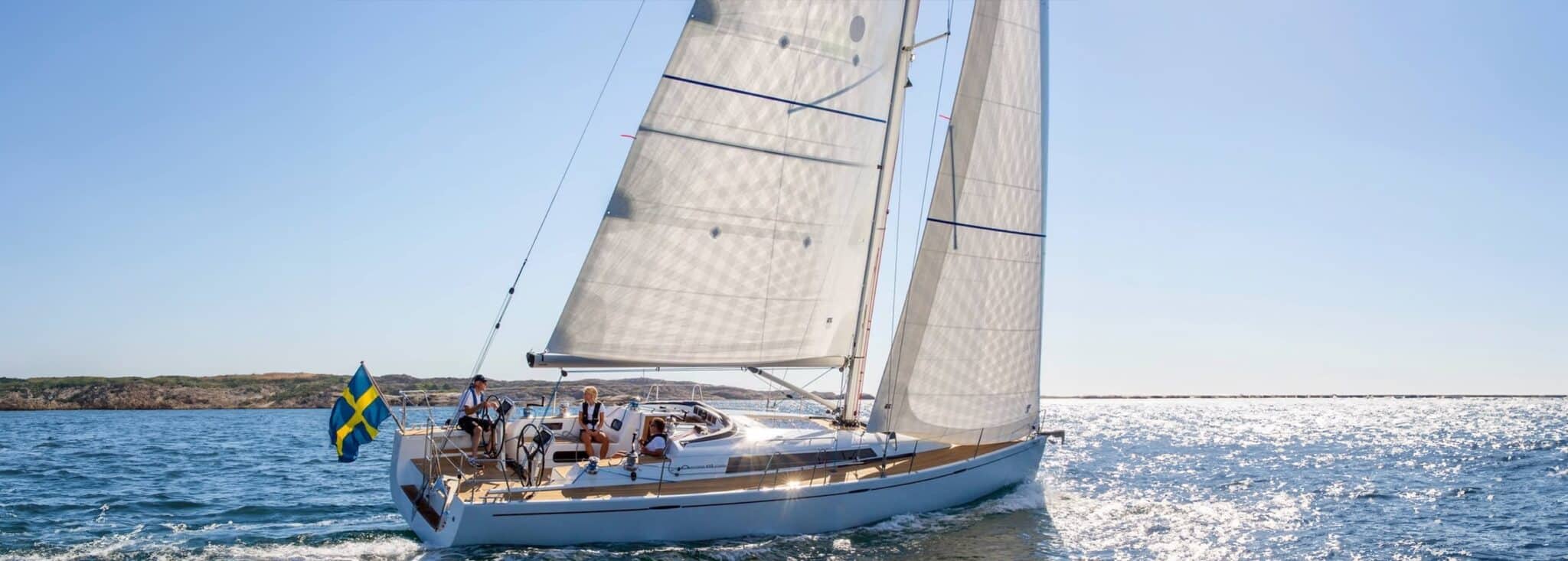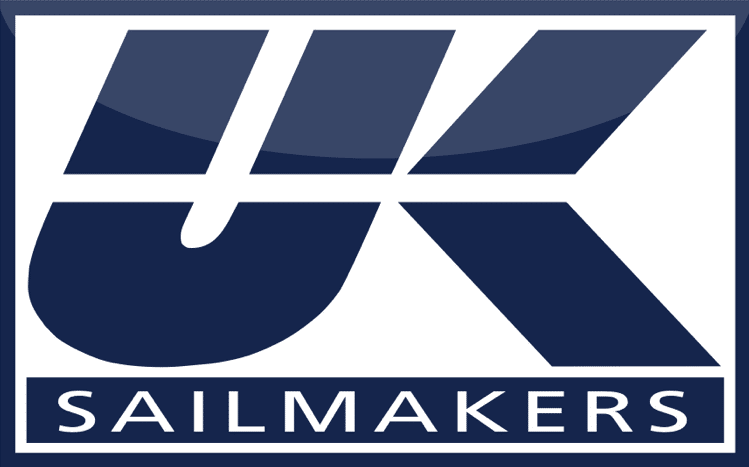
Cruising Mainsail: Radial Taffeta

Radial Sails

Radial sails were the only performance construction choice before Tape-Drive and other “string-sail” construction methods were invented. Radial sails are still an option for cruising sailors who do not want a Tape-Drive or membrane sail.
The fully articulated panel layout of a tri-radial mainsail rotates the cloth’s thread line to match the primary load paths between the three corners of the sail. Radial cut sails are made with long narrow panels (called gores) designed to align the strong warp yarns of the laminate with the primary load paths as they spread across the sail. Because all loads start from a corner and then run in arcs across the sail to the other two corners, the gores radiate from the corners of the sail.
Construction Options
Radial Dacron
Description:
Tri-Radial panel layout
Construction:
Long narrow panels radiating from the three corners that follow load paths connecting the corners.
Material:
Warp-oriented woven polyester cloth.
Shape Stability:
★★
Durability:
★★★
Shape after 500 hours:
Circa 60%
Price:
$$$
Radial Polyester
Description:
Tri-Radial panel layout
Construction:
Long narrow panels radiating from the three corners that follow load paths connecting the corners.
Material:
Warp-oriented polyester laminates
Shape Stability:
★★★
Durability:
★★★
Shape after 500 hours:
Circa 60%
Price:
$$$
Spectra or HydraNet
Description:
Tri-Radial panel layout
Construction:
Long narrow panels radiating from the three corners that follow load paths connecting the corners.
Material:
Spectra: Warp-oriented Spectra laminates
HydraNet: Spectra and polyester woven material
Shape Stability:
★★★
Durability:
★★★ – ★★★★
Shape after 500 hours:
Circa 60 -80%
Price:
$$$$$




